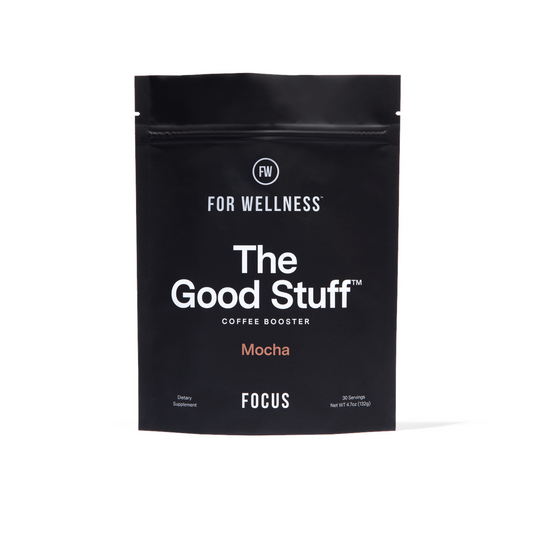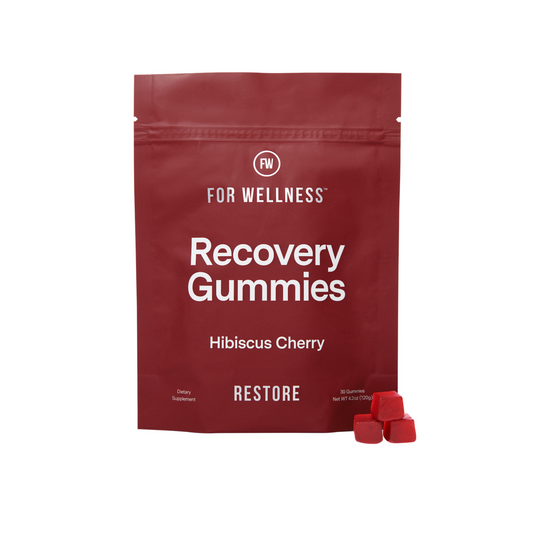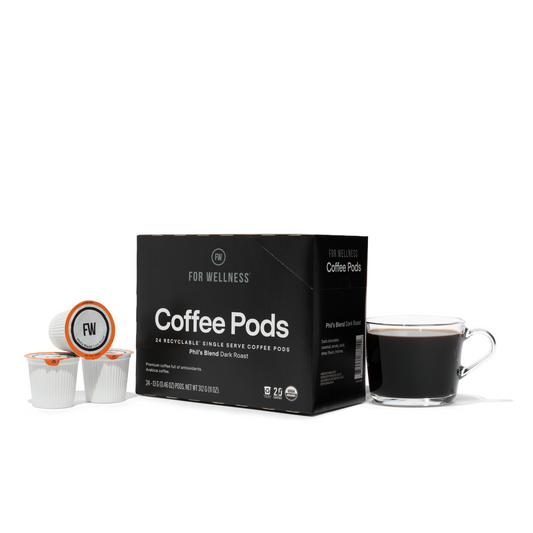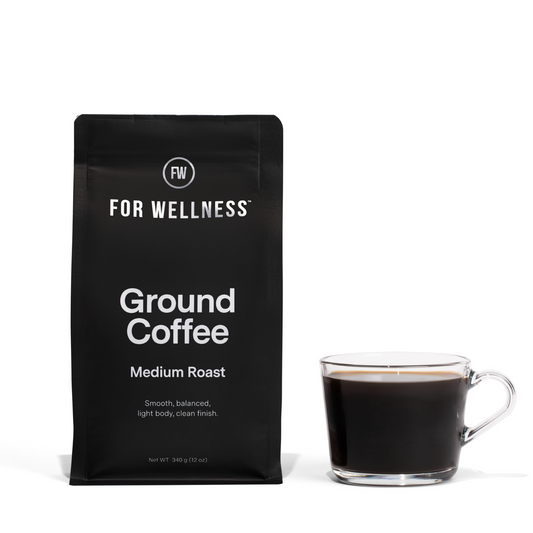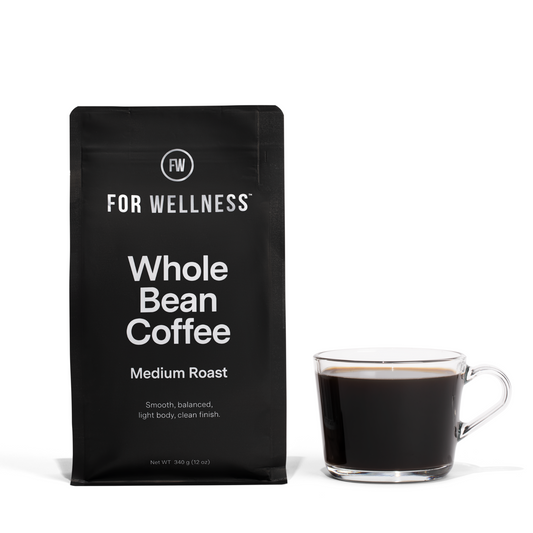The information in this article is not intended as health advice. Consult your doctor if you are unsure which foods are right for you.
Understanding the significance of functional ingredients is key to taking your performance to the next level.
Functional ingredients go beyond basic nutrition; they offer specific health benefits that enhances elements like focus, energy, cognitive function, and more.
The hard part is knowing what to look for when tailoring your grocery list to your needs.
To help you get started, we've put together a basic guide to elevating your grocery game, so you can start working on your personal regime for a stronger you.
Crafting a nutritional regime for elite performance
Creating a nutrition regime that optimizes functional nutrition is a personalized process that focuses on addressing your specific health goals and needs. Here's how to develop a functional nutrition plan tailored to you:
1. Identify Your Health Goals
Start by determining what areas of your health you want to improve. Common focus areas include:
- Increasing energy levels
- Enhancing mental clarity and focus
- Improving skin health
- Boosting immune function
- Optimizing digestive health
- Balancing hormones
- Managing weight
- Reducing inflammation
2. Evaluate Your Current Health Status
To create an effective functional nutrition plan, assess your current health:
- Keep a food diary for 1-2 weeks, noting what you eat and how you feel afterward
- Track your sleep patterns, energy levels, and any symptoms you experience
- Consider getting basic blood work done to check for nutrient deficiencies or imbalances
- Reflect on your stress levels, fitness and lifestyle factors that may impact your health
3. Determine Your Nutritional Needs
Based on your goals and current health status, identify the key nutrients and foods that are linked to your objectives:
- For mental clarity and focus: L-theanine, Omega-3 fatty acids, B vitamins, and antioxidants
- For better skin health: Collagen, Vitamins A, C, E, and zinc
- For increased energy: Iron, B vitamins, and MCT
- For improved digestion: Probiotics, fiber, and enzymes
While these foods are not a substitution for medicine, they can help boost overall health and support a stronger recovery if you do fall ill.
It's also worth noting that functional food is an evolving space, with new discoveries all the time and more studies needed in many key areas. Round out your research with plenty of sources and weigh up your findings so you know ingredients are tried and true, and which remain up for debate.
Create Your Grocery List
The best thing about functional foods is they don't have to be anything fancy. It's often the food you'd find at your local grocery store (or at your favorite functional foods website).
Write a grocery list that incorporates foods rich in the nutrients you need. Focus on whole, unprocessed foods:
- Colorful fruits and vegetables (aim for a variety)
- Lean proteins (fish, poultry, legumes, eggs)
- Healthy fats (avocados, nuts, seeds, olive oil)
- Complex carbohydrates (quinoa, brown rice, sweet potatoes)
- Fermented foods (yogurt, kefir, sauerkraut)
- Herbs and spices (turmeric, ginger, garlic)
Plan Your Meals
Structure your meals to support your nutritional goals:
- Aim for balanced meals with protein, healthy fats, and complex carbohydrates
- Bump up the protein. Most Americans are not getting enough protein in their diet. Experts recommend about 25-30 grams per meal, but this can increase depending on body weight, so consult your physician for a more accurate number.
- Include a variety of colorful vegetables in each meal
- Consider intermittent fasting or meal timing strategies if they align with your goals
- Prepare meals in advance to ensure you have nutritious options readily available
Stay Hydrated
Don't forget about hydration:
- Drink plenty of water throughout the day
- Consider herbal teas or infused water for added benefits
- Limit alcohol intake
Consider Coffee
The humble cup of coffee is one of the most accessible and effective functional foods you can get, with benefits linked to moderate consumption including better cognition, metabolic health, antioxidants, cardiovascular health, liver health, and improved athletic performance.
Supplement Wisely
While whole foods should be the foundation of your nutrition plan, targeted supplements can help fill gaps:
- Consult with a healthcare professional before starting any supplement regimen
- Consider supplements that support your specific health goals (e.g., omega-3s for brain health, probiotics for gut health)
Monitor and Adjust
Functional nutrition is an ongoing process:
- Keep track of how you feel as you implement changes
- Be patient – it can take several weeks to notice significant improvements
- Adjust your plan as needed based on your body's response and any changes in your health goals
Cut the Nasties
Functional nutrition is as much about choosing good food as it is removing the bad stuff. Eating highly processed, sugary, artificial foods can have a major impact on our health without us even realizing.
In one study of 10,775 people, researchers found higher consumption of ultra-processed foods was associated with a faster rate of cognitive decline over time. In another, scientists linked high intake of ultra-processed foods with an increased risk of 32 negative health outcomes.
Take stock of your weekly diet and see if you have can trim any of these unhealthy additions:
- Coffee syrups, flavors, and creamer. While you may think you're just adding a small dollop of your favorite creamer, the additives in your morning brew can really start to add up. Consider adding a low-calorie functional substitute like The Good Stuff™ Performance or The Good Stuff™ Focus to your black coffee.
- Store bought, sugary juices. Many fruit juices are loaded with added sugars and lack the fiber found in whole fruits. Eating whole fruits and drinking water is a more nutritious option.
- Ultra-processed foods. Foods such as chips, candy, and sugary cereals are often high in unhealthy fats, sugars, and additives. Reducing these can significantly improve dietary quality.
-
One scoop will infuse your coffee with healthy ingredients
-
Ditch the bad stuff like sugar, dairy, and artificial creamers
-
Fights inflammation and supports skin and joint health
-
Makes your coffee taste great


The Good Stuff - Performance
Consider Professional Guidance
For a more personalized approach:
- Consult with a functional nutritionist or dietitian who can provide tailored advice
- They can help interpret lab results, recommend specific foods or supplements, and create a more detailed plan
If all of this feels like a lot to take in, don't worry! Try implementing just a few of these tips and incorporating more improvements as you go. You should also bear in mind that diet is about moderation. You don't need to cut all sugar from your diet or live on kale for the rest of your life - find the balance that works for you and makes you feel your best.



